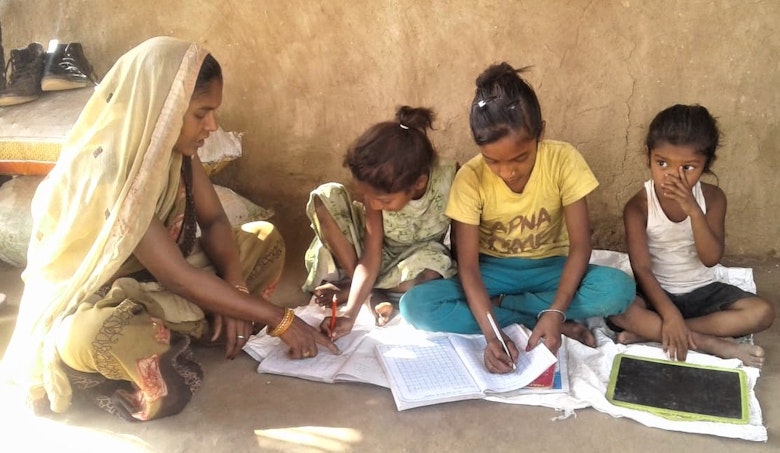Showing Anta’s Family the Way to a Quality of Life
As COVID-19 continued to distress many communities around the world, those who were already vulnerable prior to the pandemic had been pushed to the limits of their will to survive. In the Koderma district of Jkarkland, India, families have huge dependency on mica scrap collection, also known as “dhibra”. Due to lack of additional income opportunities and labour exploitation in the mica industry, parents are forced into making a hard decision of stopping their children’s education and involving them in labour.
Anta is a mother of four children living in this type of community in Koderma. The pandemic had negatively affected her family’s quality of life. The children were irregular in school while their small farm and goat rearing only provided for their own survival. To keep up with their needs, the children had to support the parents in mica scrap collection and selling. The family also receives subsidised dry ration from the government as a social entitlement meant for those below the poverty level.
“The survival was painful due to our very low income from mica collection. Additional medical attention needed for my mentally challenged son and the lockdown was the most horrifying experience in my life. The frequency of mica selling got reduced and the rates offered by the traders were at an all time low ranging between INR 5-10 per kg (less than 50-60% of the price offered prior to COVID-19 lockdown)”, said the 35-year-old mother.
Anta’s family had been identified by Terre des Hommes Netherlands’ local staff. Along with 12 other poverty-stricken families in Anta’s village, they were provided with opportunities to strengthen their additional sources of livelihoods that would be gainful and contribute to the well-being of children and enable them with a support system and means to enhance their quality of life. The children were also placed into a child club called “Balmanch”, where they learned about child rights and how to be advocates for other children like them.
TDHNL and with the coordination of the local government, Anta and the other families were put into ‘Self-Help Groups” to give them the knowledge and resources to improve their own situations.
For Anta, she received financial support and training to improve her goat rearing and vegetable farming. She learned how to keep her goats healthy and how to diversity her vegetables to increase her yield. As a result, Anta was able to have a good harvest for the family’s own consumption and for selling. Her additional income encouraged the family to stop children’s involvement in mica collection as they were able to afford tutoring and medical needs.
Anta added, “From the profit earned, we have been able to take care of medical needs of the eldest son and spend INR 600 per month (as a fee to a private tutor for all 3 children) to ensure my children spend quality time in academics. We have been able to purchase uniforms and learning materials for the children. Thanks to TDHNL for showing us the way”.
Families such as those in Anta’s village are a few groups of people who are affected by labour exploitation and the pandemic in India. With provision of knowledge and training of TDHNL and with coordination with local government and organisations, these communities can be resilient and be able to protect and empower their children.

